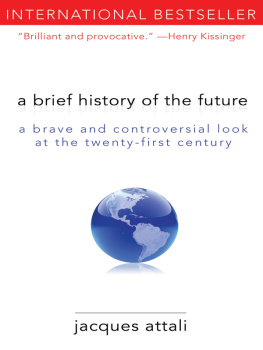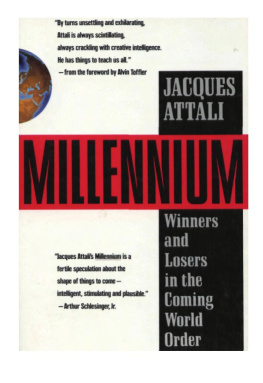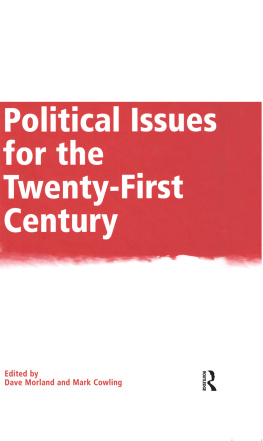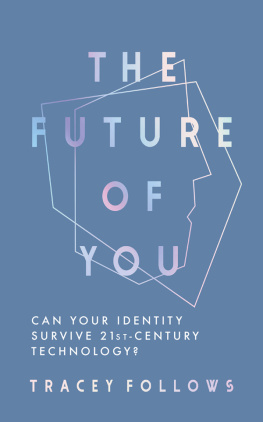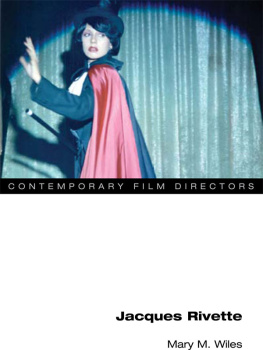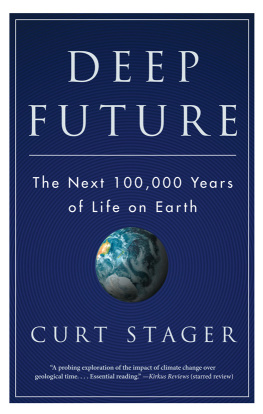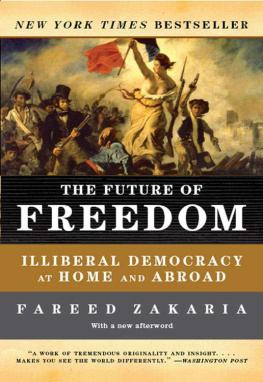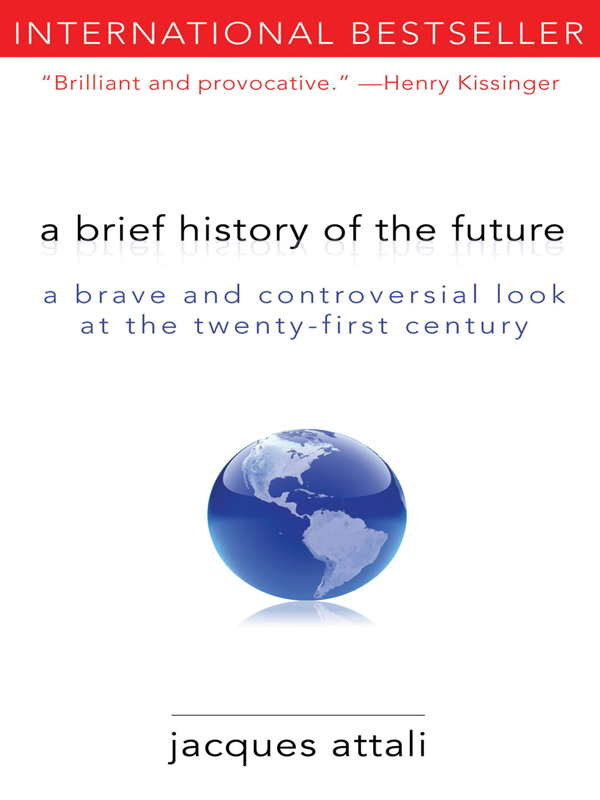a brief history of the future
a brief history of the future
a brave and controversial look at the twenty-first century
___________
jacques attali
translated by jeremy leggatt

Copyright 2006, 2011 by Librairie Arthme Fayard English-language translation copyright 2009, 2011 by Arcade Publishing
All Rights Reserved. No part of this book may be reproduced in any manner without the express written consent of the publisher, except in the case of brief excerpts in critical reviews or articles. All inquiries should be addressed to Arcade Publishing, 307 West 36th Street, 11th Floor, New York, NY 10018.
Arcade Publishing books may be purchased in bulk at special discounts for sales promotion, corporate gifts, fund-raising, or educational purposes. Special editions can also be created to specifications. For details, contact the Special Sales Department, Arcade Publishing, 307 West 36th Street, 11th Floor, New York, NY 10018 or info@skyhorsepublishing.com.
Arcade Publishing is a registered trademark of Skyhorse Publishing, Inc., a Delaware corporation.
Visit our website at www.arcadepub.com.
10 9 8 7 6 5 4 3 2 1
Library of Congress Cataloging-in-Publication Data is available on file.
ISBN: 978-1-61145-013-2
Printed in the United States of America
Alas! It is delusion all;
The future cheats us from afar,
Nor can we be what we recall,
Nor dare we think on what we are.
Lord Byron, Stanzas for Music
Contents
Foreword
A s I write this, the shape of the world in 2050 and its likely configuration in 2100 are being determined. Depending on how we act today, our children and grandchildren will either inherit an enhanced, habitable world or else will toil, loathing us, in a sort of hell. To ensure that we hand down to them a livable planet, we must start thinking now about what the future holds. We must strive to understand the origins of that future, and what needs to be done to help shape it.
One may doubt, or scoff at, the very notion of anyone daring to predict the future even twenty-five, fifty, or especially a hundred years from now. So many imponderables, so many unanticipated events or people will intervene between now and then to change the course of history.
A few examples should make this clear. If Napoleon Bonaparte had not ascended over his contemporaries in 1799, the French Revolution might have given birth to a parliamentary republic and stolen a whole century from history. If an assassin in Sarajevo had missed his target in 1914, the First World War would probably not have broken out or at least not in the same way. If Hitler had not invaded Russia in 1941, he might have died in power and in his bed, like Spains General Franco. If Japan, in the same year, had attacked Russia instead of the United States, America might not have entered the war and liberated Europe, just as in real life it never went on to liberate either Spain or Poland and France, Italy, and the rest of Europe might have remained under the Nazi heel at least until the end of the 1970s. And finally, if the general secretary of the Soviet Communist Party had not died prematurely in 1984, and if his successors successor had been as was planned Grigory Romanov rather than Mikhail Gorbachev, the Soviet Union might well still be in existence. Still, as I believe I shall demonstrate, if we first look back before looking forward, we shall see that history obeys laws that allow us to make predictions and channel its course.
Here is where the history of the future, by definition unpredictable, begins. So many coincidences could transform a local incident into a planetary episode, so many people could affect geopolitics, culture, ideology, and the economy that one may even doubt the very questions we might ask ourselves about the future, even that closest to us. Here are a few specific questions we need to ponder and address in the near term:
- Will peace in the Middle East one day be possible?
- Will global birth rates in some countries recover as mysteriously as they declined?
- Will oil supplies run out in twenty or fifty years?
- Will we find substitute energy sources?
- Will poverty and inequalities in wealthy countries become the wellspring for new violence?
- Will Arab countries one day experience a democratic movement like that of Eastern Europe?
- Will the Straits of Hormuz and Malacca, through which the bulk of the worlds oil flows, be blocked by ships sunk by pirates?
- Will North Korea end up using nuclear weapons?
- Will the West use force to prevent Iran from acquiring them?
- Will a terrorist attack in the West topple a government?
- Will it lead to the installation of authoritarian police regimes?
- Will new technologies make new forms of dictatorship possible?
- Will religions become tolerant?
- Will we discover new ways of doing away with cancer, AIDS, obesity?
- Will a dominant new religion or ideology emerge?
- Will the exploited workers in Chinese or Bangladeshi mines rise up in revolt?
- Will the American credit crisis plummet the world into another great depression?
- Will genetically modified food or nanotechnologies prove a threat or an opportunity?
- Will the climate one day be so degraded that life on earth becomes impossible?
- Will a religious war once again pit Christianity against Islam?
- Will new forms of sexual relations undermine morality?
The answers to each of these questions and many more will direct the coming decades on a very particular course, for better or worse. This is in fact the peculiarity of the times ahead: a glaringly obvious instability and such rooted interdependence that any revolt, any new idea, any technological progress, any terrorist act, any coup dtat, or any scientific discovery could change the worlds course. Any one of these events might impede the circulation of ideas, goods, capital, and people and therefore of growth, jobs, and freedom.
Yet most of these events will have only a fleeting impact on the worlds development. For beyond the problems that today seem major and will one day be resolved (we shall see later on in detail what obstacles have to be overcome), other powerful movements, seemingly unchanging, will continue their work.
Viewed from an extremely long-range standpoint, history flows in a single, stubborn, and very particular direction, which no upheaval, however long-lasting, can permanently deflect: from century to century, hu-mankind has asserted the primacy of individual freedom over all other values. It has done so through progressive rejection of all forms of servitude, through technical advances aimed at minimizing human effort, and through liberalization of lifestyles, political systems, art, and ideologies. To put it another way: human history relates the individuals assumption of his rights as an entity legally empowered to plan and master his fate free of all constraints except respect for the right of his fellow man to the same freedoms.
I predict that in the course of the twenty-first century, market forces will take the planet in hand. The ultimate expression of unchecked individualism, this triumphant march of money explains the essence of historys most recent convulsions. It is up to us to accelerate, resist, or master it.
Carried through to term, this evolutionary process means that money will finally rid itself of everything that threatens it including nation-states (and not excepting the United States of America), which it will progressively dismantle. Once the market becomes the worlds only universally recognized law, it will evolve into what I shall call

